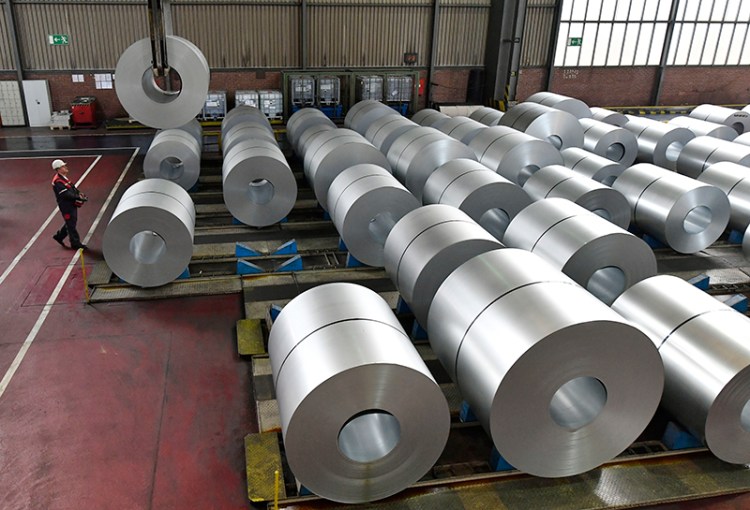President Trump’s trade saber-rattling and protectionist economic policies are discouraging the flow of overseas money into job-creating U.S. investments as foreigners grow worried about what an unpredictable government may do next.
The U.S. reputation for stability had long underpinned its status as the most popular place for investors to put their money. But Trump’s use of laws aimed at national security risks to limit imports and foreign investments is fueling a reappraisal, especially in Western Europe and China.
The administration turned to the previously rarely deployed section 232 national security provision of the 1962 Trade Expansion Act to impose tariffs on steel and aluminum imports, and now uses it to threaten crippling duties on car imports. Trump is also turning to the Committee on Foreign Investment in the U.S., or CFIUS, as a way to limit foreign investment in sensitive technologies.
Foreign direct investment in U.S. businesses, factories and subsidiaries plunged in 2017 and is falling again this year. Part of the decline can be attributed to the fall in global FDI, shrinking 23 percent worldwide, according to a report by the Organization for International Investment. Following two record years in 2015 and 2016, FDI in the U.S. last year was more along historical norms, said Nancy McLernon, head of the Organization for International Investment, a Washington trade group.
New Chinese deals in North America in the first half of this year dropped to a nine-year low of $2.5 billion, compared with $24 billion in the same period during 2017, according to a report released this week by law firm Baker McKenzie.
Overall foreign direct investment declined 32 percent in 2017, U.S. government data show.
“This newly enunciated concern for incorporating economic security concerns into the CFIUS review process is a game-changer,” said Jeremy Zucker, a partner at Dechert in Washington. He said even countries in Western Europe, who as American allies viewed the U.S. as safe ground, are worried about the prospect that their deals may be rejected.
“In the short term, investors may look to invest in other economies where the political outlook is more easily predicted,” Zucker said.
The U.S.’s large market and well-educated workforce provide a long-term advantage. But investors are increasingly looking elsewhere while Trump’s policies remain in flux. China announced $22 billion in new deals in Europe in the first six months of 2018 — favoring Sweden, Germany, the U.K. and France over the U.S., Baker McKenzie found.
Uncertainty from the administration’s negotiation strategies around trade agreements and tariffs are causing people to think about their investment decisions, said Rod Hunter, a partner at Baker McKenzie and former senior director of international economics at the National Security Council under President George W. Bush.
“Their hope would be that more production activities take place at home,” Hunter said. “I just don’t know that they’re going to get the outcome that they want.”
Part of the concern stems from Trump’s use of CFIUS, an inter-agency government panel that reviews foreign deals for national security risks, as a way to curb investment. The administration has backed bipartisan legislation to strengthen CFIUS that is making its way through Congress.
Trump is also using 232 investigations, sometimes called the “nuclear option” in trade laws, to counter cheap imports.
“The 232 tariff cases have made many of our companies pause and wonder what the next two to three years hold,” said McLernon.
For foreign companies operating in the U.S., tariffs on steel and aluminum imports threaten investment in American production facilities. The tariffs impact global supply chains, as companies that originally settled in the U.S. due to strong global connections now face trade barriers, McLernon said.
“However, the U.S. economy is very strong,” said McLernon. “Tax reform last year as well as some regulatory reform makes many of our companies very bullish on investing in the United States.”
The U.S. bond with Europe has also been strained. Trump called the European Union a “foe” on Sunday after a contentious meeting with NATO allies, continuing his striking shift in posture toward European democracies.
Federal Reserve Chairman Jerome Powell also has voiced concern on the trade climate’s impact on investment. In a Senate hearing Tuesday, he noted that tariffs are leading companies to delay capital spending decisions.
“We don’t see it in the numbers yet, but we’ve heard a rising chorus of concern which now begins to speak of actual capex plans being put on ice for the time being,” Powell said.
Send questions/comments to the editors.



Comments are no longer available on this story